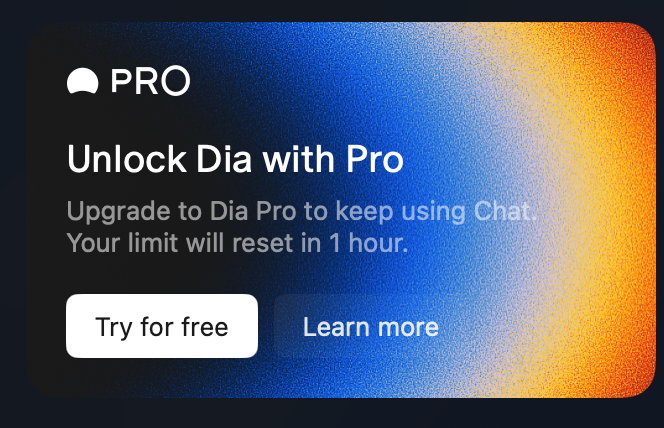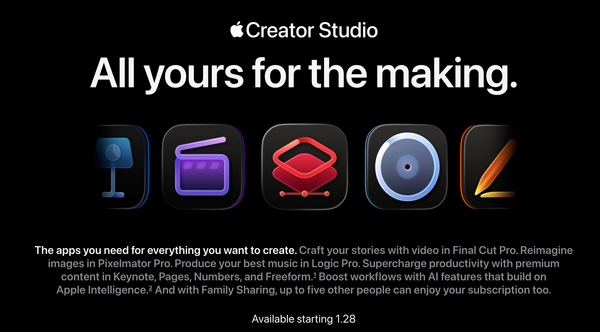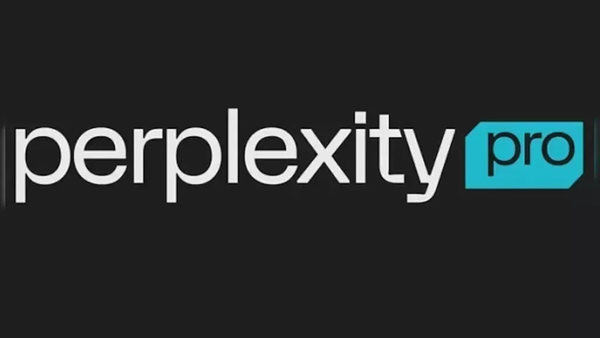Is Dia Pro $20/Month Worth it? Absolutely Not
This article exposes how AI browsers like Dia and Perplexity are more focused on cash grabs and paywalls than real innovation, leaving users frustrated and disillusioned.

Just two months since its debut, Dia the headline-grabbing AI browser from The Browser Company has already thrust a paywall upon users, raising eyebrows and tempers across the tech world. If you, like many, hoped AI browsers might finally offer a better, more trustworthy alternative to Chrome and its ilk, 2025 has provided a rude awakening.
A “Ridiculous” Subscription Before the Paint Even Dries
Today, countless Dia users (myself included) were stunned by a notification: after sending just eight messages to its AI assistant, a prompt appeared ordering us to pay up for a subscription or wait a full hour to use any more AI features. The monthly cost? An eye-popping $20. This isn’t some power-user tier, either. Free users are now heavily capped, with no clear guidance on exactly what those limits are, except that “a few times a week” of usage is reportedly allowed before you must pay or face a cooldown.

It’s not just the abrupt monetization that’s laughable, it’s the message it sends. Here is a browser less than 60 days old, still ostensibly in beta, and yet the guiding principle is already extraction, not user experience.
User Sentiment: “Abandon All Hope,” Greed Wins
Despite the stated ambitions of transforming how people interact with the web, user sentiment in Dia’s own Discord community tells a different story: disappointment, disillusionment, and the all-too-familiar dread that AI-first browser ventures are just the latest cash grab. The channels are filled with users giving up and hunting for alternatives that simply aren’t Chrome the bar is so low, and somehow even that isn’t being met.
Both Dia and competitor Perplexity’s Comet have poisoned the well so early that many doubt “AI browsers” will ever escape being synonymous with privacy invasions and relentless monetization.
Perplexity’s Comet: The Ad-Tracking Machine
If you were hoping Perplexity would be the principled alternative, think again. Perplexity's CEO has openly admitted that its real ambition with the new Comet browser is to collect as much data as possible across the web, building hyper-detailed user profiles to sell hyper-personalized ads. Its CEO is explicit: “We want to get data even outside the app to better understand you,” all in the name of outperforming even Google at targeting you for ads.
Privacy, as the CEO put it, is a distant concern profit is the real purpose. No wonder, rumors persist that Perplexity wants to buy Chrome outright.
The Future of Browsers, or Just a Faster Race to the Bottom?
The “enshitification” of tech, a process by which any promising new platform quickly devolves into extraction and user-hostility has never played out faster. AI browsers, initially touted as the next great leap in productivity and empowerment, now look like little more than a speculative wedge for new subscription empires and data surveillance.
As even die-hard early adopters flee back to Safari, Firefox, and yes, even Chrome, a new question is emerging: are AI browsers already finished before they began?
FAQ: Dia’s AI Browser
Q: How many free messages do you get with Dia before you hit the paywall?
A: Hard limits aren’t published, but many hit a wall after around 8 messages in a session, with an enforced 1-hour cooldown thereafter.
Q: How much does the Dia Pro subscription cost?
A: The current “Pro” tier is $20 per month, offering unlimited access to Dia’s AI features and chat.
Q: When did Dia launch its paywall?
A: The paywall and Pro subscription went live in August 2025, less than two months after Dia’s public beta began.
Q: Who runs Dia, and what’s their track record?
A: Dia is built by The Browser Company, creators of the Arc browser, a team that has raised $128 million in venture capital. Investors include leaders from LinkedIn, Medium, Figma, Notion, and GitHub.
Q: What privacy risks are there?
A: Both Dia and Perplexity’s Comet are rapidly moving toward aggressive data collection and ad targeting. Perplexity has been forthright: Comet was created to track all your browsing for hyper-personalized ads, with privacy concerns brushed aside as “the cost of a better search”.



